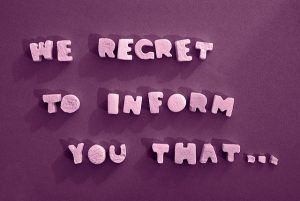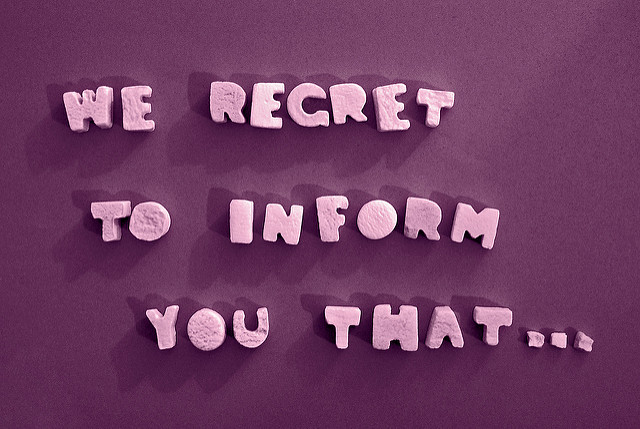
A Helpful Tip to Dealing with Rejection in the Writing Business
Rejection can be difficult to swallow. So can criticism from just about anyone, no matter if it's constructive criticism from a close friend or just plain ol' criticism from someone we've never even met.
As an independent book editor, it's my job to offer constructive criticism. Some of the things I say may be difficult to hear. I get it. As writers, me included, we've been pouring over our stories for hours. We've lived and breathed our stories. For many, the writing process is a painful and arduous road, and the editorial process is even harder.
I've had the honor of working with some pretty talented writers. It's fascinating to read about the worlds they've created, how wild their imaginations are, and how they're able to weave complex details into intriguing stories. That talent is difficult to obtain. And it takes passion to stick with it.
The thing they—and all writers who are submitting their work—need to remember though is my constructive criticism, and that of any other editor or publisher or agent, is, at least partially, based on opinion. When I offer a change suggestion, it's my personal opinion. True, I've spent thousands of hours reading and studying the writing craft, I've taken writing courses that provided feedback on my writing work, and I've studied grammar and style books. But the reality is this: it's still my opinion. And when a writer submits his work to an agent or publisher and receives either feedback or a form rejection slip, it's based on opinion, even if it's an educated one.
Publishers want manuscripts that they believe will be successful. And who can blame them? But while fifty publishers aren't willing to take on the risk, another one might because the book is just what they're looking for.
Selling a book is a business. Some businesses will give you work and others won't. There's nothing personal about it—unless you've managed to get yourself on the publishing industry's black list. As painful as rejection can be—because the recipient of a rejection slip is still a living, breathing human with emotions—we have to try not to take the rejection personally. If we take it personally, it can eat away at our creativity and our positive attitude.
Rejection is just part of the writing business. So is constructive criticism. And both are opportunities to take an honest look at our work to see where the writing can be strengthened.
- It’s been a long time… - February 10, 2024
- Realizations About Tracking Progress - May 28, 2020
- Goal Setting & Productivity 101 - May 25, 2020
